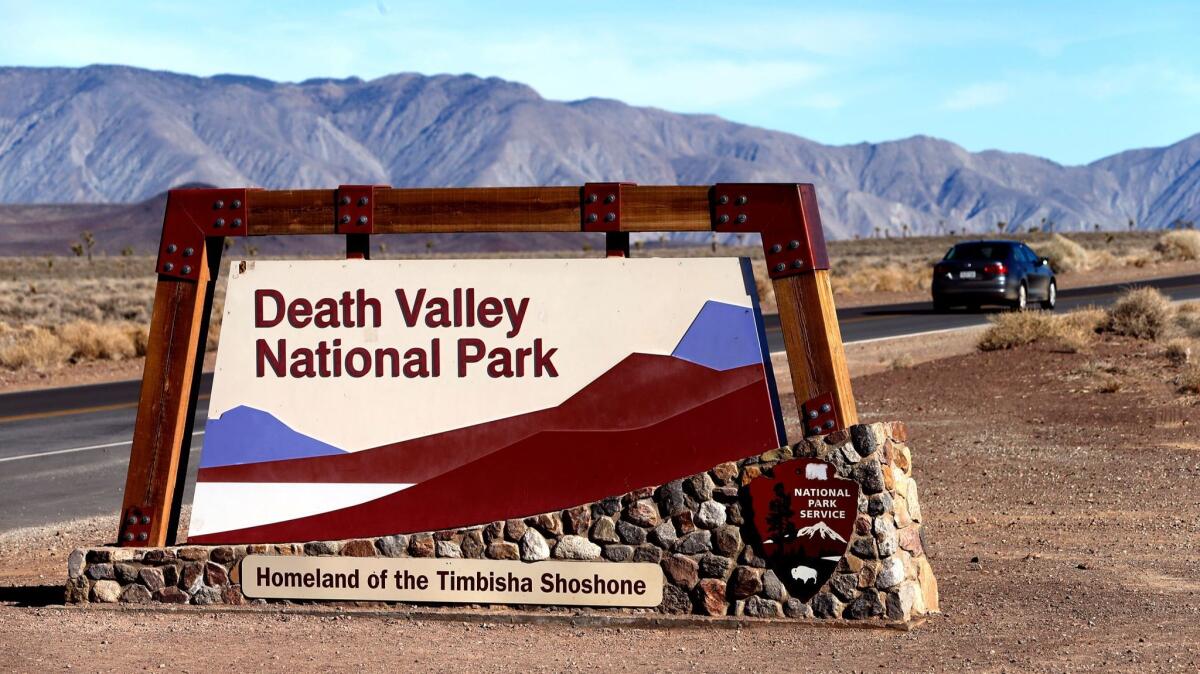Tweets from Death Valley National Park create a social media stir

- Share via
A series of messages from Death Valley National Park’s official Twitter feed set off a flurry of social media activity Wednesday when users assumed the posts were meant to be taken as commentary on President Trump.
The three posts Wednesday morning addressed internment of Japanese Americans during World War II and appeared hours after news broke that Trump was mulling a ban on the admission of Syrian refugees and restrictions on travel from several majority-Muslim nations.
“During WWII Death Valley hosted 65 endangered internees after the #Manzanar Riot. #JapaneseAmericanInternment” the first Death Valley NP tweet read.
Next, the park tweeted: “We want the opportunity they have to prove their loyalty. We are asked to accept a denial of that privilege in the name of patriotism.” The post also included a clearly vintage black-and-white photo of a man.
A third tweet a few minutes later revealed the name of the man in the photo.
“Togo Tanaka: interned at Manzanar and Cow Creek (Death Valley) during WWII #JapaneseAmericanInternment,” the tweet read.
The posts were retweeted and “liked” thousands of times in just a few hours. People replied to the tweets with comments like “resist,” and “truth to power.”
But park officials Tuesday insisted that the tweets were not politically motivated.
In an email to The Times, Death Valley National Park spokeswoman Abby Wines explained what was going on behind the scenes.
“I just spoke with the park employee that made those posts. She has been doing ranger talks here in the park about the Manzanar internees that were relocated to Death Valley since 2012. She said she’s done tweets about this topic on and off over the last few years. This is part of the park’s history, and there is no further motivation than that,” Wines said.
She also addressed the huge response on social media.
“There have been an unusually large number of comments and shares of these tweets. This appears to be because people believe that the NPS is not allowed to tweet anymore. That is not the case. There was a temporary ban. That has been lifted, and parks have been reminded to focus on park information and public safety messages. These tweets are consistent with that.”
The posts came a day after Badlands National Park in South Dakota tweeted climate change facts then deleted them.
For breaking California news, follow @JosephSerna on Twitter.
ALSO
Badlands National Park tweets, then deletes, climate facts hours after news breaks of EPA gag order
Man found dead under snowbank outside his home near Lake Tahoe
California ‘sanctuary cities’ vow to stand firm despite Trump threats of funding cutoff
More to Read
Sign up for Essential California
The most important California stories and recommendations in your inbox every morning.
You may occasionally receive promotional content from the Los Angeles Times.














